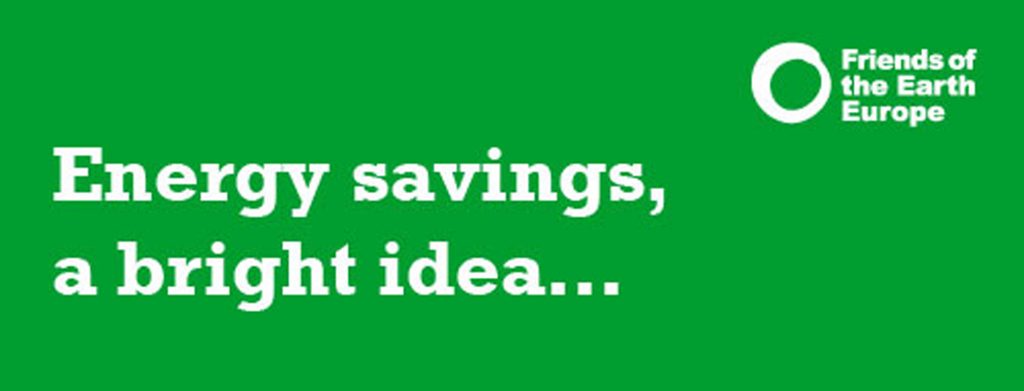Member States are rightly shunned by their peers for getting creative with budget deficit figures. So why is there so much support from national governments to apply the same methods to the EU’s draft Energy Efficiency Directive?
Leaked documents from European Council meetings show that at least 12 out of 27 Member States are seeking to include ‘early actions’ in the Directive. If successful, they would be allowed to credit savings made before the implementation of the Directive (hence ‘early action’).
Why is this so important? At present rates the EU will only reduce its energy use by 9% in 2020, missing its 20% savings target by over half. Logically, all new legislation and measures to save energy have to be additional to existing polices – otherwise the target won’t be met.
Early action is a bogus way to double count and avoid making additional savings. And there is a worrying precedent: The 2006 Energy Services Directive (‘ESD’, which set annual 1% savings targets) allowed Member States to credit savings from as far back as the mid-1990s. This means only 50% of the energy savings were actually new measures. Ironically, the early action-induced failure of the ESD is one of the main reasons for preparing the new Energy Efficiency Directive.
Early action is especially damning when we look at the benefits the 20% savings target is expected to deliver: cost savings of over €200 billion per year, reduced dependency on oil and gas imports and a higher CO2 reduction target. The crucial point is that Member States crediting early action will statistically meet their energy savings goals. But their real savings will be much lower – and so will CO2 reductions and savings on energy bills. This is fraudulent accounting.
Note to Permanent Representations
Countries which have done a lot to save energy in recent years understandably want this to be recognised in the Energy Efficiency Directive. It is fair to take past efforts into account when allocating binding national targets that demonstrably add up to the overall 20% objective. This is what happened with the 20% renewable energy targets. But early action must not be allowed to undermine central measures in the Energy Efficiency Directive – as Member States are trying to do with the 1.5% annual savings target in Article 6. To do so would lead to the consistent and deliberate misreporting that governments are usually so quick to denounce.
By Brook Riley, Friends of the Earth Europe and Erica Hope, Climate Action Network Europe
This blog post orginally appeared on http://efficiency1st.blogactiv.eu/






